A former equestrian champion was reportedly tortured for 21 years in a Syrian prison after beating dictator Bashar al Assad’s older brother in a competition.
Adnan Kassar, who won several gold medals and captained the national equestrian team in the 1980s, was a close friend of Assad, whose older brother Bassel was also an equestrian companion.
Bassel was the original heir to the Syrian presidency before dying in a car accident in 1994, prompting Assad to return from London, where he worked as an ophthalmologist, to take up the political role.
But Kassar and Assad’s friendship would take a turn for the worse when the pair competed against each other and Kassar emerged victorious.
Speaking to Sky News about the dire consequences he faced following the collapse of Assad’s brutal regime, he recalled how the crowd carried him on their shoulders after he won the competition, describing it as a moment of pure joy.
“It wasn’t the same for Bassel,” Kassar said. ‘That day marked the beginning of my nightmare.’
After the competition, Kassar was arrested on vague accusations that he claimed were invented by a jealous Bassel.
The former champion told the news channel how his detention turned into a decades-long ordeal, filled with brutality and psychological abuse.
Adnan Kassar, pictured, who won several gold medals and captained the national equestrian team in the 1980s, was a close friend of Assad, whose older brother Bassel was also an equestrian companion.
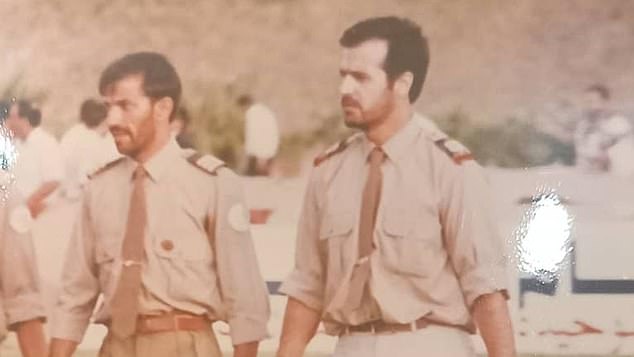
Kassar and Assad’s friendship would worsen when the pair competed against each other and Kassar emerged victorious.
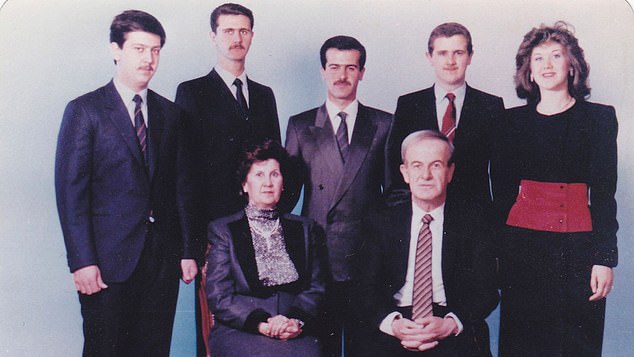
Bassel (pictured center) was the original heir to the Syrian presidency before he died in a car accident in 1994, prompting Assad to return from London, where he worked as an ophthalmologist, to take up the political role.
Kassar claims he was initially kept underground for six months, while suffering torrents of physical abuse at the hands of Assad’s men.
He was then transferred to Syria’s infamous Sednaya prison, nicknamed the “human slaughterhouse,” where, he said, “the torture only got worse.”
Assad previously denied killing thousands of detainees at Sednaya and using a secret crematorium to dispose of their remains in 2017.
Many detainees have revealed that they were raped while incarcerated and, in some cases, forced to rape other inmates.
Torture and severe beatings by guards were used as a common form of punishment and degradation, often resulting in people suffering lifelong damage, disabilities, and even death.
Cell floors were covered in blood and pus from injured prisoners, according to a 2017 Amnesty report, and prison guards collected the bodies of dead detainees each morning at 9 a.m.
But with no end in sight, Kassar explained how the terrible treatment escalated after Bassel’s sudden death.
“They blamed me for his death, every year, on the anniversary of his death, the torture intensified,” he said.
After enduring the harsh conditions at Sednaya, Kassar was transferred to Tadmur prison, where he spent seven and a half years.
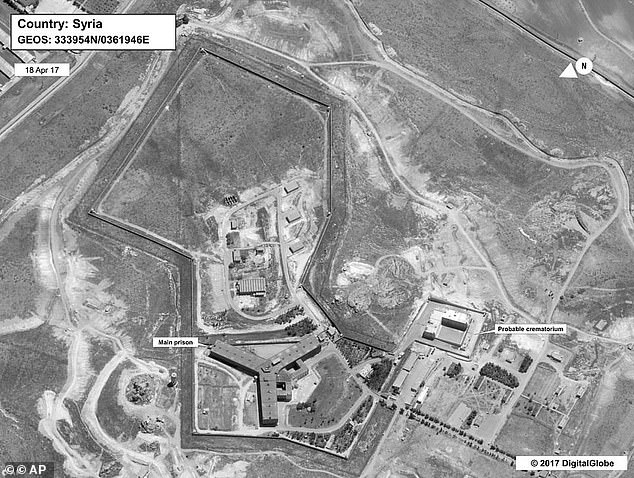
The military prison (pictured from an aerial view) is famous for its inhumane conditions, systematic torture and mass executions.
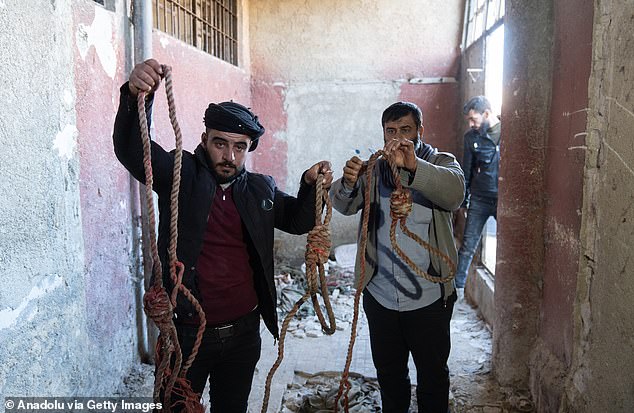
Ties were found after rebels liberated the Sednaya military prison near Damascus.
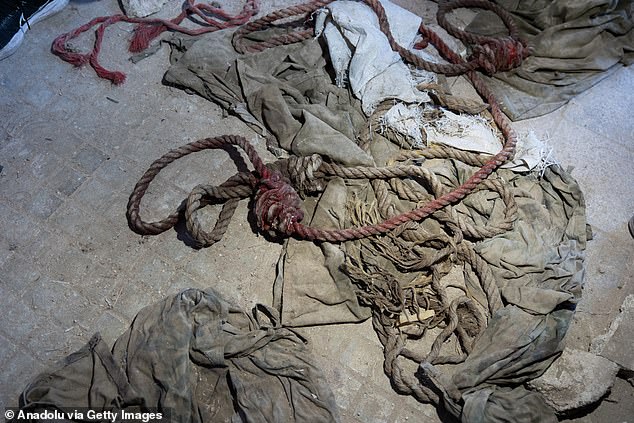
Ropes are seen strewn across the floor of the facility, which has become notorious for its brutal treatment of inmates.
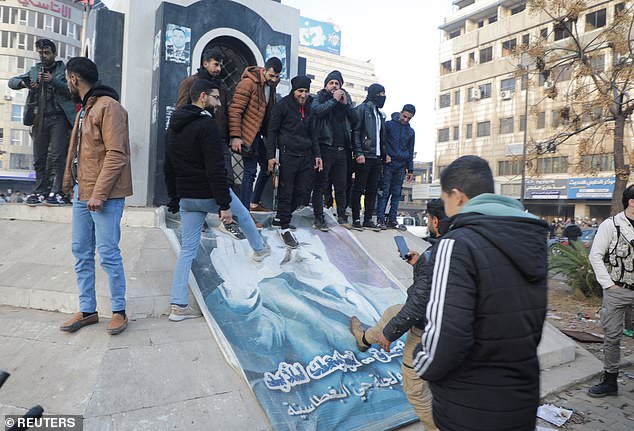
People kick down a sign depicting Syrian President Bashar al-Assad after the Syrian army command notified officers that al-Assad’s 24-year rule had ended.
He recalled that Assad’s men pierced his ear one morning, before breaking his jaw at night, acts such as praying received severe punishment.
‘For praying, they whipped me 1,000 times. “My feet were shattered and my bones were exposed,” Kassar told the news channel.
Over the years, many activists have raised his case and several international appeals have been made to try to free him from his imprisonment.
But his name was repeatedly excluded from amnesty decrees and he was left to rot in numerous hellish Syrian prisons for more than two decades.
Kassar was finally released on June 16, 2014, after prolonged pressure from international human rights groups, but has until now remained silent about his ordeal.
“After years of imprisonment, torture and injustice, the revolution finally overthrew the dictatorial regime,” he added.
But Assad’s atrocities and human rights violations extended beyond prison walls after UN weapons inspectors turned up “overwhelming and indisputable” evidence of nerve gas use in Syria in 2013.
Assad faced calls for international military action against his government after alleged chemical weapons attacks in the suburbs of Damascus.
Then-UN Secretary-General Ban Ki-moon called the August 21 attack “the worst use of weapons of mass destruction in the 21st century.”
The United States said that attack may have killed more than 1,400 people, including hundreds of civilians.
The Syrian opposition accused pro-Assad forces of carrying out the attacks, but Assad denied using chemical weapons and claimed that if such weapons had been used, rebel forces were to blame.
Assad’s tactics against the rebels continued to draw international condemnation even as his forces refrained from using chemical weapons.


